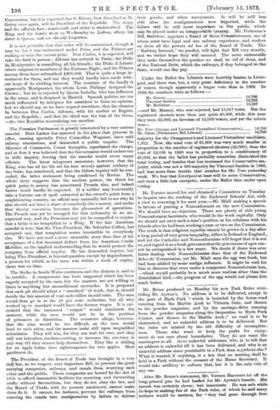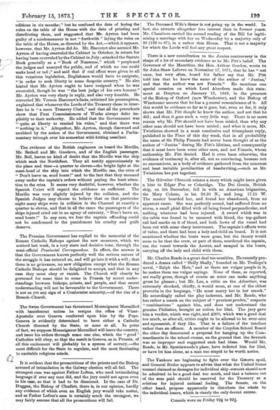After Mr. Bruce's statement, Mr. Vernon Harcourt let off the
long-primed gun he had loaded for Mr. Ayrton's benefit. His speech was certainly clever, but inaccurate. He was safe while he kept to making fun of the Park rules, of which he said many authors would be envious, for "they had gone through four editions in six months;" but he confused the date of laying the rules on the table of the House with the date of printing and distributing them, and suggested that Mr. Ayrton had been guilty of a misdemeanour in not " forthwith " laying the rules on the table of the House, as directed by the Act,—which it appears, however, that Mr. Ayrton did do. Mr. Harcourt also accused Mr. Ayrton of having overruled the Cabinet in October, in return for having been overruled bythe Cabinet in July; attacked the Statute Book generally as a "Book of Nonsense," which "perplexed the judges and annoyed the public, and of which no one could make head or tail ;" and said that if real effect were given to all this vexatious legislation, Englishmen would have to emigrate, " in order to seek liberty in some despotic country." He also hinted that Mr. Ayrton ought to have resigned when he was overruled, though he was "the best judge of his own honour." Mr. Ayrton was very sharp in reply, and also very humble. He corrected Mr. Vernon Harcourt's facts, criticised his presumption, explained that whenever the Lords of the Treasury chose to inter- fere he is "a. mere Treasury Clerk," and that all the precedents show that First Commissioners of Works always defer im- plicitly to their authority. He added that the Government was 4' quite at liberty to rescind his rules," and that there was 4' nothing in it." Altogether, Mr. Ayrton, though disowned and snubbed by the action of the Government, obtained a Parlia- mentary triumph over his somewhat wild-hitting assailant.



































 Previous page
Previous page